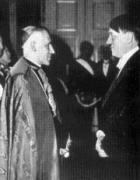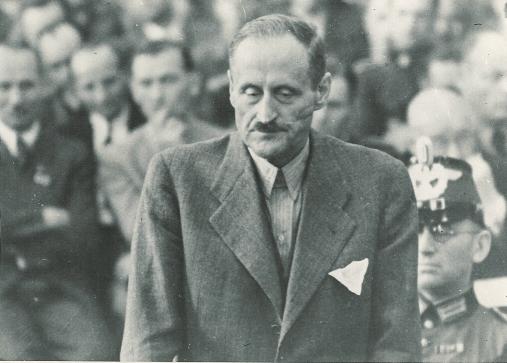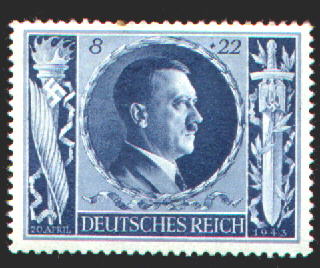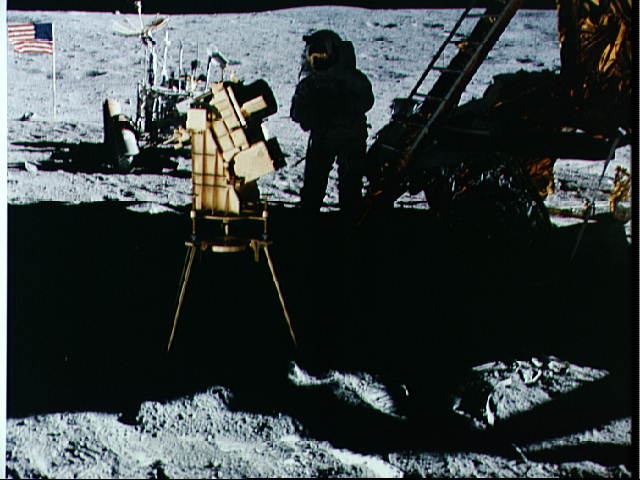
April 20

0121 Birth: Marcus Aurelius, philosopher, 16th Roman emperor, 161-80. "Roman Emperor and Stoic, the author of Meditations in twelve books. Its first printing appeared in English in 1634. During the reign of Marcus Aurelius the celebrated Pax Romana collapsed - perhaps this made the emperor the most believable of all Stoics. An important feature of the philosophy was that everything will recur: the whole universe becomes fire and then repeats itself...Marcus Aurelius was born in Rome. He came from an aristocratic family long established in Spain. His father was Annius Verus. When only a small child, he attracted the attention of the Emperor Hadrian (r. 117-138) - a pedophile and his fellow-countryman. He was appointed by the Emperor to a priesthood in 129, and Hadrian also supervised his education, which was entrusted to the best professors of literature, rhetoric and philosophy of the time. From his early twenties he deserted his other studies for philosophy. The Emperor Antoninus, who succeeded Hadrian, adopted Marcus Aurelius as his son in 138. He treated Aurelius as a confidant and helper throughout his reign. Aurelius was admitted to the Senate, and then twice the consulship. In 147 he shared tribunician power with Antoninus. During this time he began composition of his Meditations, which he wrote in Greek in army camps- Thus Book I is headed 'This among the Quadi on the Gran', and Book II 'Written at Carnuntum'. In 161 Marcus Aurelius ascended the throne and shared his imperial power with his adopted brother Lucius Aurelius Verus. Useless and lazy, Verus was regarded as a kind of junior emperor, but he died in 169. After Verus's death he ruled alone..."
0295 The 8th perihelion passage of Halley's Comet is recorded.
1505 All Jews are expelled from Orange Burgandy by Philibert of Luxembourg.
1534 French explorer Jacques Cartier sets sail from St. Malo to explore the North American coastline.

1653 Oliver Cromwell expels the Rump Parliament. "...With the death of the ancient constitution and Parliament in control, attention was turned to crushing rebellions in the realm, as well as in Ireland and Scotland. Cromwell forced submission from the nobility, muzzled the press and defeated Leveller rebels in Burford. Annihilating the more radical elements of revolution resulted in political conservatism , which eventually led to the restoration of the monarchy. Cromwell's army slaughtered over forty percent of the indigenous Irishmen, who clung unyieldingly to Catholicism and loyalist sentiments; the remaining Irishmen were forcibly transported to County Connaught with the Act of Settlement in 1653. Scottish Presbyterians fought for a Stuart restoration, in the person of Charles II, but were handily defeated, ending the last remnants of civil war. The army then turned its attention to internal matters. The Rump devolved into a petty, self-perpetuating and unbending oligarchy, which lost credibility in the eyes of the army. Cromwell ended the Rump Parliament with great indignity on April 21, 1653, ordering the house cleared at the point of a sword. The army called for a new Parliament of Puritan saints, who proved as inept as the Rump. By 1655, Cromwell dissolved his new Parliament, choosing to rule alone (much like Charles I had done in 1629). The cost of keeping a standard army of 35,000 proved financially incompatible with Cromwell's monetarily strapped government. Two wars with the Dutch concerning trade abroad added to Cromwell's financial burdens. The military's solution was to form yet another version of Parliament..."
1657 English-Spanish Wars: The English navy under Admiral Robert Blake attacks and destroys all 16 ships of the Spanish fleet in Santa Cruz harbor, Tenerife, and then destroys the city.
1689 The siege of Londonderry begins when supporters of James II attack the city. The population will nearly starve to death before the siege is raised on 30 July.
1769 Death: Pontiac, chief of the Ottawa Indians, murdered by an Illinois Indian in Cahokia.
1770 Captain Cook arrives in New Holland, now known as New South Wales, Australia.

1775 US Revolutionary War: The Siege of Boston begins. "When darkness fell on April 19 - a date still observed as "Patriots Day", a State holiday in Massachusetts - General Gage's troops were safely back in their Boston enclave, but they were effectively bottled up there by an ad hoc army of militiamen just across Boston Neck. These militiamen had been called up for only short term service, and most of them would be discharged to return home by late April or early May. Accordingly, the Massachusetts Provincial Congress, a revolutionary legislature meeting in Watertown which was the de facto government for all of Massachusetts outside British-controlled Boston, sprung into action. On April 23, this body authorized the formation of a number of regiments of State troops to constitute a 13,600 man "Army of Observation", to "observe" the British garrison in Boston. Still professing to be loyal subjects of the Crown, the provincial congressmen could not bring themselves to use the more confrontational, military term "besiege", although a siege is nevertheless what they effectively undertook. As the militiamen who had responded to the "Lexington Alarm" gradually dispersed, they were replaced by these new, somewhat more permanent regiments, most of the officers and men of which were enlisted to serve until the end of the year. Within a month, the "Army of Observation" grew to well over 12,000 men, plus officers, in some 24 regiments of Massachusetts Troops, and 3 regiments each of Connecticut, New Hampshire, and Rhode Island Troops, under the overall command of Massachusetts Major General Artemas Ward. These troops were in no sense of the term "professional" soldiers, but all of them had received at least a modicum of military training..."
1777 US Revolutionary War: New York adopts a new constitution as an independent state.
1792 War of the First Coalition: France declares war on Austria, Prussia and Sardinia.
1808 Birth: Louis-Napoleon, also known as Napoleon III, emperor of France, 1852-71.
1809 Napolean I defeats Austria at Battle of Abensberg, Bavaria.

1812 Death: George Clinton, fourth US Vice President, at 73; the first VP to die in office.
1832 Hot Springs National Park, the first national park in the US, is established by an act of Congress. It had been a reservation prior to becoming a national park.
1836 The US Congress separates the western part of Michigan Territory and forms a new territory to be known as Wisconsin.

1841 The Murders in the Rue Morgue by Edgar Allan Poe, considered to be the first modern detective story, is published in the US. The story features C. Auguste Dupin, the first-ever fictional detective. Poe considers his work an example of ratiocination - the process of logical and methodical reasoning.

1850 Birth: Daniel Chester French, American sculptor.
1861 US Civil War: Robert E. Lee resigns from the US Army.
1871 The 3rd Enforcement Act is made law, empowering the President to suspend writ of habeas corpus.
1879 The first 'mobile home' (horse drawn) is used for a journey between London and Cyprus.
1884 Pope Leo XIII publishes his encyclical On Freemasonry.
1888 246 are reported killed by hail in Moradabad, India.

1889 Birth: Adolf Hitler arrives into the world he is destined to alter so drastically. He is born between 6:00 and 6:30 PM, on the third floor of the Gasthof zum Pommer. A Franziska Pointecker is the midwife.
1893 Birth: Joan Miro, in Spain, painter; Dog Barking at the Moon.
1893 Birth: Harold Lloyd, in Burchard, Nebraska, silent comic, bespectacled comedian famous for his stunt scenes; Why Worry, Safety Last.
1898 The US Congress passes the Teller Amendment affirming that the United States has no intentions to exercise sovereignty, jurisdiction, or control Cuba after its pacification. Five days later the US will declare war on Spain and the Spanish-American War will begin.
1898 The US Assay Office in Deadwood, South Dakota opens.
1902 Scientists Marie and Pierre Curie isolate the radioactive element radium.
1910 Halley's Comet passes the Earth on its 29th recorded perihelion at 87.9 million km distance.
1916 Sir Roger Casement, a British diplomat working to support Irish republicanism, lands in Ireland to incite rebellion against the British; he will be captured within hours and hanged for high treason on 3 August.

1916 WW1: The Lafayette Escadrille, a French squadron made up of American volunteers, flies in action for the first time on the Western Front.
1919 The Polish Army captures Vilna, Lithuania from the Soviet Army.
1921 Weimar: Adolf Hitler receives a book from Dr. Babette Steininger, an early Nazi member, as a birthday present. The book is an essay by Tagore, an Indian mystic and nationalist. On the book's fly-leaf, a handwritten inscription from Steininger reads "to Adolf Hitler my dear Armanen-Brother." (Phelps)
1926 The first check is sent by radio facsimile transmission across the Atlantic.
1927 Birth: Alex Karl Muller, in Switzerland, superconductivity physicist, Nobel Prize-1987.

1933 Church and Reich: On Hitler's 44th birthday, his first since becoming leader of Germany, Monsignor Kaas sends a telegram of congratulations from Rome that is widely published in the German press. Kaas assures Hitler of "unflinching cooperation." This undoubtedly accelerates the movement of Catholics into the Nazi camp. (Lewy)

1933 Reich Propaganda Minister Goebbels delivers his first annual Hitler's Birthday Address. "...The newspapers today are filled with congratulations for Reich Chancellor Adolf Hitler. The nuances vary, depending on the tone, character, and attitude of the newspaper. All, however, agree on one thing: Hitler is a man of stature who has already accomplished historically important deeds and faces still greater challenges. He is the kind of statesman found only rarely in Germany. During his lifetime, he has the good fortune not only to be appreciated and loved by the overwhelming majority of the German people, but even more importantly to be understood by them. He is the only German politician of the post-war period who understood the situation and drew the necessary hard and firm conclusions. All the newspapers agree on this. It no longer needs to be said that he has taken up Bismarck's work and intends to complete it. There is enough proof of this even for those who do not believe..."
1934 Himmler is appointed inspector of the Prussian Gestapo.
1937 General Franco declares Spain a totalitarian state and assumes dictatorial power.
1937 The International Order of B'nai B'rith is banned throughout Germany.


1939 Hitler celebrates his 50th birthday with the largest military display in German history, as representatives of the US, Britain and France look on.
1939 Holocaust: Joint hearings of the US House and Senate are held concerning the admission, on a non-quota basis, of 20,000 German Jewish children over a two-year period.
1939 New York's World Fair opens.

1940 WW2: Reich Propaganda Minister Goebbels delivers his annual Hitler's Birthday Address, the first during wartime. "...two hours after English plutocracy declared war on the German Reich, the British Prime Minister Chamberlain gave a radio speech to the German people in the most broken German. One might call it the first English act of war, and it proved to be the first, worst, and most fateful psychological error that the British plutocracy could make. Chamberlain did not betray who had given him the right to speak to the German nation. He was of the opinion that the German people he was attempting to speak to was in about the same intellectual and spiritual condition as it was after the capitulation of 9 November 1918, when it gave itself up to the arbitrary lust for revenge of the Western powers. The point of the speech was that England had no intention of waging war against the German people, but rather intended to help them. Germany needed only to accept the simple British proposal to get rid of the Führer or so-called Hitlerism, and the result would be a quick and easy peace. We can remark in passing that during the seven months of the war, British plutocracy had long since stopped telling the world such hypocritical platitudes. Its best and most eloquent publicists have long since made it clear that the goal of British plutocracy is to destroy the German people and the German Reich. They wish to return it to its state after the Peace of Westphalia in the year 1648. At the beginning of the war, however, they sang the same old song..."
1940 RCA publicly demonstrates its new and powerful electron microscope, in Philadelphia, Pennsylvania.

1941 WW2: Reich Propaganda Minister Goebbels delivers his annual Hitler's Birthday Address. "...Two years ago we celebrated his 50th birthday with the most splendid parade that the Reich capital had ever seen. The German people saw clearly for the first time how strong the Reich had become under six years of National Socialist government. We hoped then that the Führer's efforts to preserve peace for our nation and the world would succeed. Already the fanfares of hatred were sounding from London and Paris, calling for war at any price. We knew that if our enemies once more forced the Reich to fight for its national existence, the German people for the first time in their history would be united in all their branches, prepared spiritually, economically and militarily, ready to present the world with a miracle of strength, manliness, sovereign political and spiritual superiority, military power and precision. Our eternal enemies declared war on us in September of that year, and since then the German miracle has become reality. The German soldier defeated the enemy wherever he met him. In breathtaking victories unique in history, brilliant offensives defeated Poland, Norway, Holland, Belgium and France. England has been thrown from the continent, and the British Empire is receiving powerful blows in the homeland, on the Atlantic and in North Africa that are shaking its foundations. If one asks how our enemies could declare war on the Reich under such conditions, the only answer is that they did not believe in the enormous power of a great personality nor in the strength of his work..."

1942 Those Vichy French: Pierre Laval, the premier of Vichy France, in a radio broadcast, establishes a policy of 'true reconciliation with Germany.'

1943 The Secret Diary of Anti-Hitler Conspirator Ulrich von Hassel: (Ebenhausen) "The longer the war lasts, the lower my esteem for the generals sinks. Admittedly, they have professional ability and physical courage, but little moral courage, absolutely no over-all or international view. Nor have they the least spiritual or intellectual independence or resistance based on true culture. They are accordingly unable to deal with a man like Hitler and absolutely at his mercy. In addition, the majority regard career in the worst sense, money and the field marshal's baton, as more important than the great principles and moral values that are at stake. All those on whom hopes had been set have proved worthless. And in the most miserable fashion: they agree to everything one says to them and join in the wildest plans but cannot summon up the courage to act."

1943 Holocaust: Himmler promises to crush Jewish resistance in the Warsaw ghetto, remarking that dead Jews will make a fine birthday present for Der Fuehrer.
1945 WW2: The first Russian shells fall on Berlin as Adolf Hitler celebrates his 56th birthday. (Eyes)
1945 WW2: Reich Propaganda Minister Goebbels delivers his last annual Hitler's Birthday Address. "...This is not the time to speak of the Führer's birthday in the usual way or to present him with the usual best wishes. More must be said today, and by one who was won the right both from the Führer and the people. I have been at the Führer's side for more than twenty years. I have seen his rise and that of his movement from the smallest and most improbable beginnings up to the seizure of power, and gave my best efforts to them as well. I have shared joy and sorrow with the Führer, from unprecedented historic victories to the terrible setbacks in the remarkable years from 1939 until now. I stand beside him today as fate challenges him and his people with its last, most severe test. I am confident that fate will give him and his people the laurel wreath of victory. The fact that Germany yet lives, that Europe and the civilized world have not yet fallen into the dark abyss that looms before us, is thanks to him alone. He will be the man of this century — who was sure of himself despite terrible pain and suffering — who showed the way to victory..."
1945 WW2: The US Seventh Army and other Allied forces take control of the German cities of Nuremberg and Stuttgart.
1953 Korea: Operation Little Switch begins in Korea; the exchange of sick and wounded prisoners of war.
1962 The New Orleans Citizens Committee offers free one-way rides to blacks moving North.
1962 Death: Jesse G. Vincent, at 82, engineer; designed the first V-12 engine.
1967 The Nam: US planes bomb Haiphong for the first time during the Vietnam War.
1968 Pierre Elliott Trudeau is sworn in as prime minister of Canada.
1971 The US Supreme Court upholds the use of busing to achieve racial desegregation in schools.

1972 Apollo 16's Young and Duke land on the moon, with Boeing Lunar Rover #2.
1973 Canadian ANIK A2 becomes the first commercial satellite in orbit.
1980 The first Cubans sailing to the United States as part of the massive Mariel boatlift reach Florida.
1983 Soyuz T-8 is launched, but the mission is aborted when the capsule fails to dock.
1984 The British government announces that, in accordance with the treaty signed with China in 1898, its administration of Hong Kong will cease in 1997. In September of the same year, a formal agreement will be signed with the Chinese Communist authorities, approving the 1 July 1997, turnover of the island in exchange for a Chinese pledge to preserve Hong Kong's capitalist system. In 1839, at the outbreak of the First Opium War, Britain invaded and occupied Hong Kong, a sparsely inhabited island off the coast of southeast China. Two years later, China, defeated in its efforts to resist European interference in its economic and political affairs, formally ceded Hong Kong to the British with the signing of the Chuenpi Convention. Britain's new colony flourished as an East-West trading center and as the commercial gateway and distribution center for southern China. In 1898, Britain was granted an additional ninety-nine years of rule over Hong Kong under the Second Convention of Peking. Eighty-eight years later, after months of intense negotiations, Britain and China approve the 1997 turnover. On 1 July 1997, Hong Kong will revert back to Chinese rule during ceremonies attended by Chinese and British officials, including Prince Charles, heir to the British throne. The chief executive under the new Hong Kong government, Tung Chee Hwa, will formulate a policy based upon the concept of 'one country, two systems', thus preserving Hong Kong's role as a principal capitalist center in Asia.
1990 Former junk bond financier Michael Milken agrees to plead guilty to six felonies and pay $600 million in penalties to settle the largest securities fraud case in history.
1995 In the aftermath of the Oklahoma City bombing, the FBI announces that it is looking for two men suspected of renting the truck used to carry the explosive. Rescue teams suspend the search for survivors so that the remaining structure of the Alfred P. Murrah Building can be shored up.
1996 World leaders meeting in Moscow agree to boost nuclear safety through new cooperation and Ukraine reluctantly confirms, a decade after the Chernobyl disaster, that it will close down the plant by the year 2000.
2001

2002
2002 British PM Tony Blair calls for a new Middle East peace process to end the bloodshed as the UN Security Council elects to send a fact-finding team to Jenin.
2003 China sacks two health officials amid accusations that the scale of the Sars outbreak is being hidden.
2003

2004

2005

2005

2005

2005

2005

Visit:




 Visit:
Visit:

Click Here to email the History: One Day At a Time webmaster.